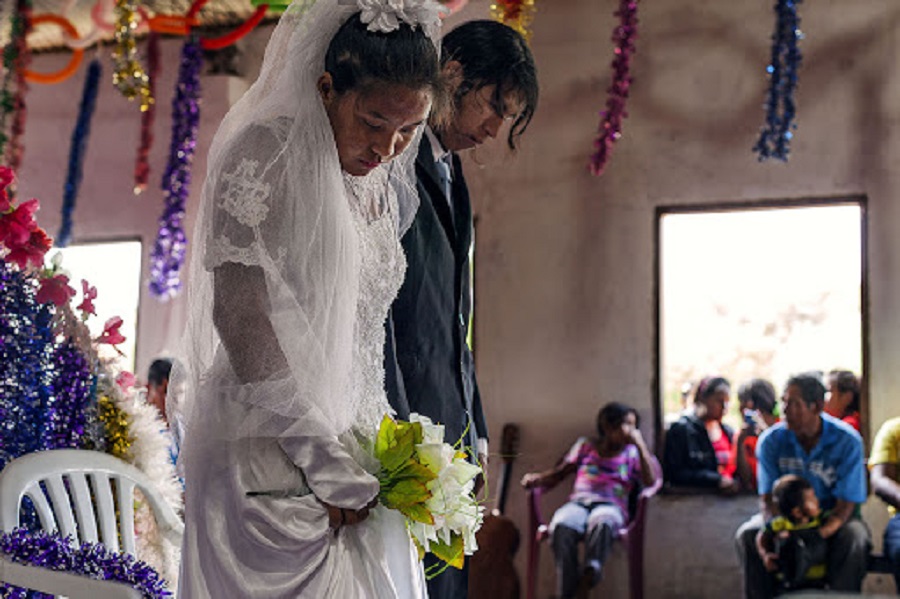RIO DE JANEIRO, BRAZIL – According to the report “Invisibles in plain sight. Early and forced unions in Paraguay,” there are some 17,000 such unions in the country.
The reasons are related to families’ many economic problems and low schooling rates. The forced union of a girl or adolescent with an adult man have a behavioral pattern similar to child labor.
The family of origin gives away the girl or adolescent – this time to a person who will become her partner – a more serious situation due to exposure to various forms of violence, including sexual abuse. Despite this, the practice continues to occur due to the social and cultural norms that systemize it.

In terms of educational impact, some girls and women in unions continued and continue to study, but with great difficulty. Most of them dropped out of school or high school when they entered into a union, particularly when pregnant, and when asked if they would change anything about their decision they answered that they wished they had finished their studies before.
These girls and adolescents are forced to shoulder domestic and childcare responsibilities in precarious conditions and with little previous experience in this type of tasks.
There are situations in which they also have to take on tasks to meet the needs of other relatives, when, for instance, they move into their partner’s mother’s home. In addition to domestic work, informal work and childcare tasks, these girls and adolescents experience social isolation, lack of recreational time, loss of their friends, among other situations.
They spend most of their time locked up in their homes, trying to survive with the scarce resources available, and subjected to the expectations of their partners and society, which force them to take on the role of “women.”
“Child marriage and early and forced unions limit the opportunities for a full development, deepening inequality. When poverty and exclusion conditions of families are extreme, the problem of child marriage and early and forced unions is seen as a solution,” the report states.
Authorities stated that protection programs must be developed in other contexts to fight this problem and prevent it from becoming endemic.
ALMOST 17,000 FORCED UNIONS IN 2017
In 2017, some 700,000 people in Paraguay comprised the 13 to 17 age group, of whom 16,589 reported being in unions or married, with a higher number of girls and adolescents (13,563 people, representing 81.8% of this group, and of whom 62.9% live in rural areas).
The 2016 MICS (Multiple Indicator Cluster Surveys) offers a closer look at the phenomenon in people within the 15-19 age range. Among girls in this age bracket, 16.1% reported being married or in a union, and this figure rises to approximately 1 in 3 among those who reached up to the primary level of education (1st and 2nd cycles of Basic School Education) and among indigenous ethnic groups (36.6% and 30.8%, respectively).
Likewise, 1 in 4 girls (25%) aged 15 to 19 in the poorest income bracket reported being married or in a union.
PREGNANCY, POVERTY AND SCHOOL ABANDONMENT
The study also reveals the close relationship between early unions and pregnancy, poverty and school abandonment, factors that condition the development of the lives of thousands of girls and adolescents.
The findings are an alert to the need to eradicate this issue, the practice of which is widely accepted and has been normalized in large sectors of society.
The presentation was made by the United Nations Population Fund and Plan International with the support of the Ministry of Children and Adolescents. The research was conducted in Asunción and in the departments of Central, San Pedro, Caaguazú, Alto Paraná and Amambay.

